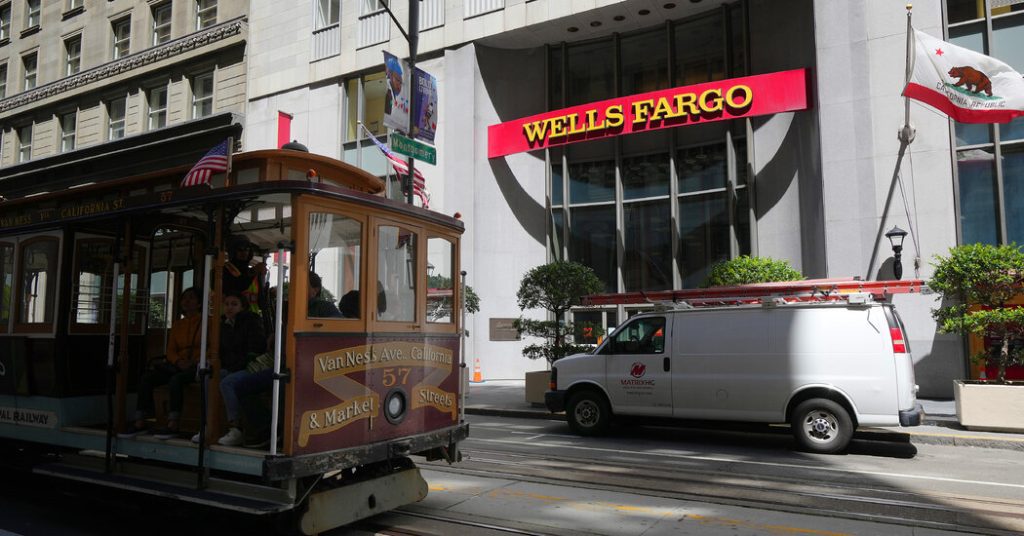Wells Fargo’s mistreatment of its customers over the years has led to another record fine and a warning that more restrictions on its ability to do business may soon follow.
The Consumer Financial Protection Bureau said the bank agreed on Tuesday to pay a $1.7 billion fine and $2 billion in other damages to settle claims it was involved in a range of banking abuses over the past decade that harmed millions of consumers.
The bank misapplied customer payments to home and auto loans, wrongly repossessed some borrowers’ cars and homes and charged overdraft fees even when customers had enough money to cover purchases they made with their bank cards, according to an order filed with the Consumer Protection Bureau. Wells Fargo stopped the conduct this year as part of a larger effort to remove other abusive practices dating back to 2011, according to the filing.
The fine is the largest ever imposed by the regulator, breaking the previous record of $1 billion, which it also set. Action against Wells Fargo.
The settlement allows the bank to tackle one of a series of crises that led to the ouster of its former chief executive. Timothy Sloan, in 2019. Mr. Sloan took the top job to help clean up the reputation of the bank, which was reeling from self-inflicted scandals, but he became a source of criticism and was replaced after three years in the job by Charles W. Scharf. .
But the bank still has to face other regulatory challenges, including a Consent order imposed by the Federal Reserve In 2018 it restricted its growth until it fixed its many problems, and mortgage servicing capabilities limits imposed in 2021 by the Office of the Comptroller of the Currency for similar reasons.
Bureau of Consumer Protection Director Rohit Chopra told reporters Tuesday that the action against the bank “should not be read as a signal that Wells Fargo is over its longstanding troubles or that the CFPB business here is over.”
As part of its settlement with the regulator, Wells Fargo also made reimbursements to customers, refunding fees charged incorrectly and offering some financial relief to those whose finances and credit ratings had been hurt by the bank’s practices.
The damages, some of which the bank has already begun paying, include refunding overpayments on home and auto loans; restore the value customers lost when the bank took their cars and locked them on their homes; and returning money improperly held after offering auto loan customers “guaranteed asset protection” insurance, which would cover the difference between their outstanding loans and the value of their cars if collected or redeemed.
Compensation in some categories has already begun trickling down to malpractice victims, but other parts of the $2 billion in payments are new, including the requirement to pay $205 million in overdraft fees.
Bank officials confirmed in a statement on Tuesday that the latest agreement with the regulator showed the bank’s progress in improving its business practices.
“This far-reaching agreement is a significant milestone in our work to transform Wells Fargo’s operating practices and put these issues behind us,” Mr. Scharf said in the statement. Wells Fargo is “a different company today,” he added.
The Consumer Protection Bureau warned that the bank will be closely monitored as it works to end and fix its recent breaches, and that it will examine whether further restrictions on the bank’s activities are needed. Mr. Chopra said in a statement that the office will work with other bank regulators, including the Federal Reserve and the Office of the Comptroller of the Currency.
The fine also covers improper mortgage and auto loan charges Wells Fargo charged customers, as well as the bank’s practice of freezing customers’ bank accounts very quickly and closing them when automatic fraud-detection systems indicate unusual activity. Some practices started as early as 2011, but almost all have continued beyond the initial bank stage. account with regulators for his widespread breaches, which began in 2016.
“Wells Fargo’s repeated law-breaking rinse cycle has harmed millions of American families,” Mr. Chopra said said in the organizer’s statement. “This is an important initial step for long-term accountability and reform for this repeat offender.”

“Amateur organizer. Wannabe beer evangelist. General web fan. Certified internet ninja. Avid reader.”




/cdn.vox-cdn.com/uploads/chorus_asset/file/24401980/STK071_ACastro_apple_0003.jpg)


More Stories
Paramount appears ready to back away from the Skydance deal
Coinbase’s revenue rose 72% to $1.6 billion, beating analysts’ expectations
Scott Sheffield: The American oil tycoon is accused of trying to conspire with OPEC to inflate prices